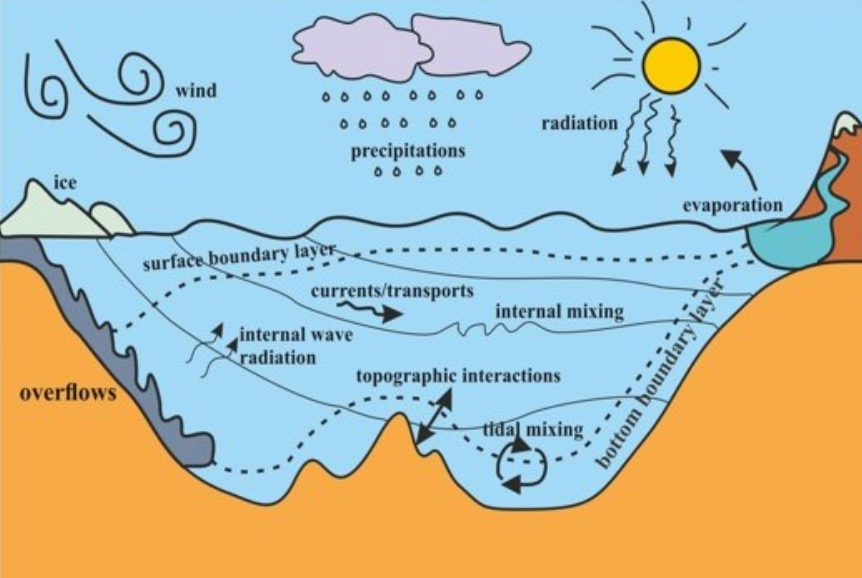
03 March 2023
Geophysical flows refer to the motion and behavior of fluids, such as air and water, in the Earth’s atmosphere and oceans. These flows are influenced by gravity, Earth’s rotation, temperature differences, and pressure gradients, and they exhibit a wide range of complex and nonlinear behavior. Geophysical flows can occur over a wide range of scales, from microscopic to planetary, and can have important implications for the Earth’s climate and weather patterns.
Examples of geophysical flows include ocean currents and atmospheric circulation. Understanding these flows is essential for predicting and mitigating natural hazards such as hurricanes, as well as for understanding the long-term dynamics of the Earth's climate and environment.
 Petrola & Woods (2018)
Petrola & Woods (2018)
The study of geophysical flows involves the application of (i) mathematical models, (ii) observational data, and (iii) laboratory experiments to understand better the underlying physical processes that govern the behavior of fluids in the Earth system. Geophysical Flows Lab, a Centre of Excellence at IIT Madras, is set up to make advances in the above three aspects with the vision of unlocking the mystery of Earth's cimalte mechanism.
With Prof. Manikandan Mathur as the principal investigator, Geophysical Flows Lab (GFL) has co-investigators from various departments within IIT Madras and collaborators from all over the world.
A salient thrust area of GFL is using unmanned aerial vehicles (UAVs) for data accumulation. UAV observations have temporal and spatial resolutions that nicely fit in between those of the measurements made by satellites looking down from space and mooring buoys floating at a point on the ocean. The new kind of data gathered by UAVs (which could not have been collected otherwise) could give information and insights for better climate models.
Design, automation, and operation of UAVs for environmental monitoring make me a part of GFL. However, the centre has a much broader scope. In particular, GFL envisages a unified approach towards geophysical flows combining field measurements, climate modeling, and laboratory modeling (theory/simulations/experiments). So there is something definitely for you in there. You, too, can be part of GFL and contribute to understand climate better and making Earth a better place to live. Visit the GFL website to learn more about the ongoing projects and how you can fit in and contribute .